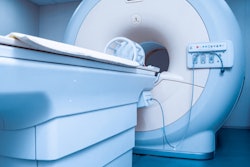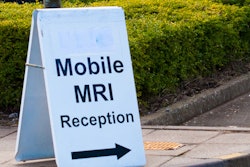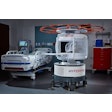Public interest in retail whole-body MRI is growing, and radiologists can play a key role in addressing the hype by engaging online to explain its value and limits, according to a presentation April 30 at the American Roentgen Ray Society (ARRS) meeting in San Diego.
Companies like Prenuvo and Ezra began offering whole-body MRI in 2018, prompting the American College of Radiology to issue a statement advising against its use in average-risk individuals due to concerns about reliability, cost, and incidental findings, noted Michelle Lee, MD, of NYU Langone Health.
“But public interest continued to surge, especially after Kim Kardashian called it a life-saving scan on Instagram in August 2023, sparking major attention and debate,” Lee said.
In a study, Lee and colleagues examined how the public truly perceives whole-body MRI amid this growing hype and identified opportunities for radiologists to further engage in these conversations. The group evaluated public sentiments based on discussions on Reddit, a platform with more than 57 million daily users.
 Headlines capture the hype around WB-MRI.Michelle Lee, MD, and ARRS
Headlines capture the hype around WB-MRI.Michelle Lee, MD, and ARRS
Between 2013 and 2024, more than 3,000 posts with the terms “whole body MRI,” “Prenuvo MRI,” or “Ezra MRI” were made by nearly 2,000 unique users. Activity after Kardashian’s viral post accounted for up to 38% of all posts. Most users (78%) were from the general public, with posts by healthcare professionals comprising about 10%; 5% of users were physicians, and even fewer were radiologists.
“Surprisingly, only 5% of users had actually undergone a whole-body MRI, suggesting that much of the conversation online was speculative or secondhand. So this points to a major gap between public interest and its actual use,” Lee said.
About a third of the posts were supportive of whole-body MRI screening, and the most common reasons were for early detection of asymptomatic conditions, Lee noted. Many people feared silent conditions such as pancreatic cancer, and Prenuvo's marketing (“Catch it before it becomes a crisis”) capitalizes on this, Lee noted.
Self-advocacy was a smaller, but still powerful theme, Lee added. About 4% of users described considering getting a whole-body MRI after feeling dismissed by their providers, and Lee offered a quote by one user that captured that frustration:
“I have several medical issues and get bumped from doctor to doctor. None of them want to work together to figure things out. They all want to stay in their little specialty bubble. So patients like us have to take things into our own hands,” the user wrote.
Nearly half of the posts opposed full-body screening, citing ethical concerns about equity, fear-based marketing, incidental findings, and limited clinical value. Among healthcare professionals, 73% opposed whole-body MRI. Also, many users question the ethics of promoting $2,500 scans for preventative care, Lee said.
Ultimately, the study revealed that patients are actively seeking clear evidence-based guidance on whole-body MRI, and this creates a key opportunity for radiologists to share their expertise online, Lee said.
“Public interest in whole-body MRI is growing … users seek support and clarity, not criticism, when discussing whole-body MRI online,” she concluded.




















